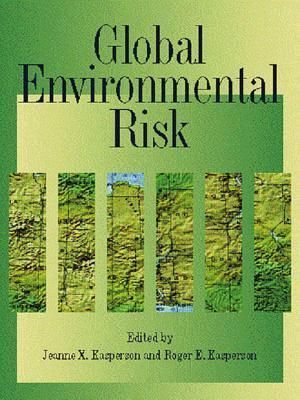
Global Environmental Risk
Despite international initiatives such as the Earth Summit in 1992 and ongoing efforts to implement the Kyoto Protocol, human activities continue to register a destructive toll on the planetary environment. At root, research on global environmental risk seeks new pathways for reversing unsustainable trends, curtailing ongoing destructive activities, and creating a life-sustaining planet. This book takes stock of the distinctive challenges posed by global environmental risks, the capacity of knowledge systems to identify and characterize such risks, and the competence of human society to manage the unprecedented complexity. Particular attention trains on engaging, in ways conducive to enhancing social learning and adaptation, the large uncertainties inherent in these risks. Various chapters enlist different scales of analysis to explore the manifestation and causes of global environmental risks in all the diversity of their regional expression. Throughout, the editors and contributors accord prominence to the vulnerability of people and places to environmental degradation. Understanding vulnerability is a neglected key to assessing the nature of the risks and determining strategies for altering trajectories of threat. Global risk futures, the editors argue, are not intractable, and are still amenable to a risk-analysis enterprise that is democratic in principle, humanistic in concept, and geared to the realities that pertain to the particular societies, locales, and regions that will ultimately bear the risk.